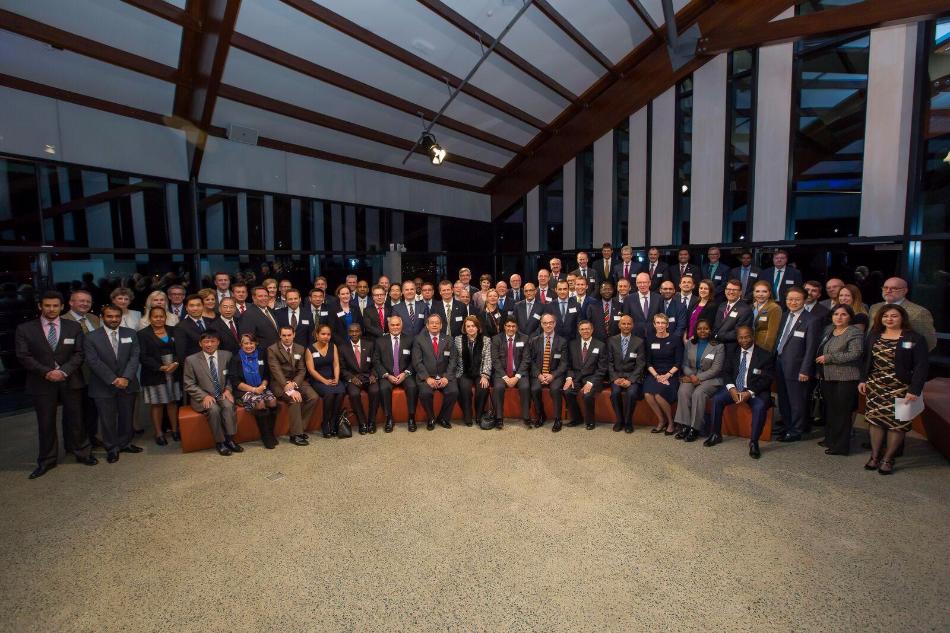
The University of Queensland hosted diplomatic leaders from almost 70 countries at an Ambassadorial Reception and Dinner at the National Arboretum in Canberra last month.
The event gave an opportunity for ambassadors, high commissioners and diplomatic representatives based in Canberra to meet with UQ’s senior management group and discuss opportunities for global collaborations.
UQ Vice-Chancellor and President Professor Peter Høj said the event showcased UQ’s global reach and research power to the foreign Diplomatic Corps, who maintain relationships between Australia and the governments of other nations.
“Given the many competing demands on their time, the fact that a large number of foreign diplomats and high-ranking officials attended the event attests to UQ’s global standing and connectivity,” Professor Høj said.
“Through this event, we aim to nurture networks that can support UQ to foster and strengthen collaborations, research commercialisation, student engagement, international mobility and human capital development.”
“It is evident, based on the positive feedback we’ve received, that there is value in building mutually beneficial relationships with the Diplomatic Corps so we can work in partnership to transform contemporary challenges.”
Professor Høj said UQ partnered with people and organisations across the globe to deliver the best outcomes for students, staff and the community at large.
“UQ is a truly global university that enrols students from over 140 countries, has more than 2000 academic staff who were born overseas, and conducts research that has enhanced lives worldwide,” Professor Høj said.
“We have partners such as Boeing, Merck, Pfizer, Novartis, Leo Pharma, the Bill and Melinda Gates Foundation,Baosteel, the World Bank, the Global Environment Fund and Dow Chemical, a partnership which led to UQ being the first university outside North America to host a Dow centre.
“In addition, we have joint laboratories in China, health research and commercialisation deals with the UK and USA, offices in North America and Indonesia, the first Australian university clinical medical school in the USA, and English language teaching operations in Latin America.”
These widespread industry connections and links with top global universities enable almost of a quarter of UQ undergraduate students to engage in some form of international experience.
“The first and foremost of our six foundations for the future is students and their success, and to work so that employers all over the world recognise UQ graduates as recruits of choice,” Professor Høj said.
“It is increasingly evident to us that a global experience enhances graduates’ appeal to employers and feeds their capacity to collaborate across cultural divides.
“Indeed our proudest contribution to global society is our graduates, who currently live, work and make a difference in 170 countries.”
“By fostering leadership, creating and applying knowledge and working with some of the best in education, research, private industry, philanthropy and government we hope to advance ideas that benefit the world.”
For more information about UQ’s global programs and partnerships, please contact the UQ Global Engagement Office at global.engagement@uq.edu.au.



